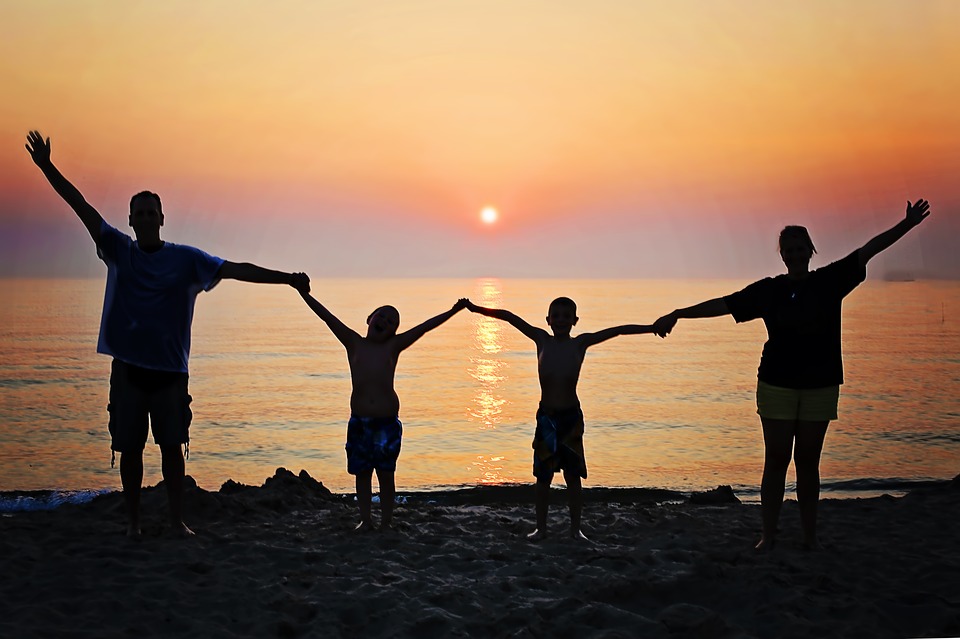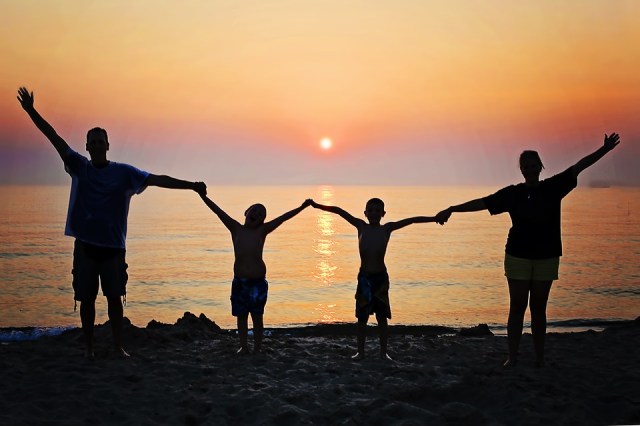
Over two thousand years ago the Buddha observed that “cravings” were the source of most of our suffering. (And he was pretty wise… like a Buddha, in fact!)
Basically, cravings cause us to chase after pleasure in material things, but this habit always ends in frustration and suffering, as the happiness they offer is fleeting and ungraspable.
I was recently reminded of this as we loaded a mini-van full of toys to donate to the Salvation Army in a struggle to declutter.
These toys were an archive of must-have toys from Christmases past, and most didn’t get much love after the New Year.
In fact, our kids had a bad habit of getting a “pleasure-hangover” after the last toy was opened on Christmas morning. Their moods seemed to sink after the cravings and anticipation turned into discontent, often before we could clean up the wrapping paper.
So, after a number of these unsatisfying Christmases, we got wiser. We stopped spending hundreds of dollars on “things,” and don’t even participate in the commercial bacchanal that is “Black Friday.” (ugh!)
So, what do we do instead?
Now we get the kids an experience
Our big gift to the kids usually centers around an event, and includes a night in a hotel. Since we’re a train ride from NYC, there’s no shortage of options for family travel, but certainly anywhere fun and exciting will do.
For the last two Christmases we’ve been on a Hamilton (the Musical) kick, so trips to Williamsburg and Philadelphia were a lot of fun. One year it was a long-weekend trip to Florida after we found cheap, last-minute airfare.
This year? Not sure yet. Maybe (half-price) tickets to Aladdin on Broadway, and a night in the city?
We usually make a photo book of our annual adventure, so that’s fun to bring back the memories years later.
Anyway, what I’m trying to say is that we’re all so much happier not dumping “stuff” on each other on Christmas day. We all feel lighter, and there’s a lot less anxiety.
The True Meaning of Christmas
“Sure, Charlie Brown, I can tell you what Christmas is all about…”
Yes, I think Linus was onto something back in 1965.
We’ve all heard that “money can’t buy happiness,” but we’re also told ad nauseam every day that it can.
How? Well, in the form of advertising and social media, of course.
In fact, a recent study shows that we can be bombarded with ads of some sort up to 5,000 times a day. This exposure to advertising is like steroids for our cravings, and that is really bad.
Ugh! If he weren’t so enlightened, Buddha would be so depressed.
Proof that Toys Don’t Buy Happiness (Ah, hah!)
I’m happy to give you proof that “things” don’t equal happiness. Wrap your brain around this statistic:
- American children make up less than 4% of the world’s population, but own 50% of the world’s toys!
You’d think that as the richest country with the most toys, we’d at least be on the list of the 10 happiest countries, but we’re not.
However, we do top the charts in anxiety and obesity, and debt, so maybe we want to stop trying to satisfy our cravings with “things.”
This obsession with consumption seems to be a human sickness, maybe leftover from our ancient hunter-gatherer DNA? Kind of makes you think that the Buddha was right all along.
Here’s a small way to fight back…
Give An Experience this Christmas!
So, I hope that you consider lightening up on the toys this Christmas. Maybe a Broadway show isn’t in your budget this year, but no problem; it’s the quality time together that matters.
If you have any ideas of non-material gift substitutes, leave a comment below!

























